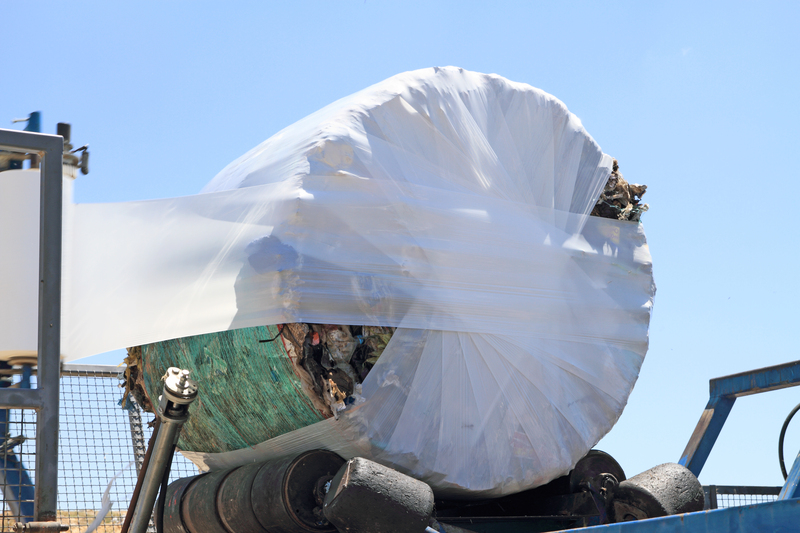Slash Disposal Costs for Bulky Waste Items with These Tips
Dealing with bulky waste items is an unavoidable reality for homeowners, renters, business owners, and even municipalities. Whether you're renovating, decluttering, moving, or simply upgrading household appliances and furniture, disposing of large, unwieldy items can quickly become expensive. But with the right knowledge and strategy, you can slash disposal costs for bulky waste items, saving money while also protecting the environment.
Understanding Bulky Waste and Why It Matters
Before exploring cost-cutting tips, it's important to understand what qualifies as bulky waste. Bulky waste, sometimes called "bulk refuse" or "large item waste," includes items too large for regular curbside trash collection, such as:
- Old furniture (sofas, beds, wardrobes, desks, tables, etc.)
- Large appliances (refrigerators, washing machines, stoves, etc.)
- Mattresses and box springs
- Yard debris (branches, tree stumps, large lawn equipment, etc.)
- Carpets and rugs
- Large electronics (TVs, monitors, etc.)
- Construction debris (bathtubs, doors, windows, etc.)
Improper disposal of these items can lead to environmental harm, create eyesores in neighborhoods, and incur hefty municipal fines. Additionally, bulky item disposal costs can quickly eat into renovation or moving budgets, making it essential to find affordable alternatives.

Why Is Disposing of Bulky Items So Costly?
Municipalities and private haulers charge higher fees for oversized waste because it requires additional labor, equipment, and landfill space. In some cities, special pickup fees for individual items may range from $20 to over $100 per piece.
- Landfill tipping fees -- These cover the costs of operating landfills, processing, and maintenance.
- Labor and transport -- Large, heavy items need extra manpower and specialized vehicles.
- Environmental surcharges -- Certain items, such as refrigerators or electronics, have disposal fees to cover safe handling of hazardous materials.
Over time, these charges compound, especially during large projects or multiple moves. However, there are numerous ways to minimize the financial burden associated with bulky waste disposal.
Top Strategies to Slash Disposal Costs for Bulky Waste Items
1. Check for Free Municipal Bulk Pickup Services
Many cities offer periodic bulky waste pickup programs for residents--sometimes free, or at a nominal fee. The key is:
- Contact your local sanitation department or check their website for guidelines, schedules, and limits on allowable items.
- Plan ahead and time your disposal activities to coincide with these community "bulk waste days."
- Keep items separated (appliances, furniture, yard waste) as required, to avoid mix-ups and fines.
In some cases, individual neighborhoods arrange annual clean-up events with low or no-cost removal. Leverage these local resources whenever possible to avoid paying for private haulers.
2. Donate, Sell, or Give Away Usable Items
One man's trash is another man's treasure. Before tossing out furniture, appliances, or electronics, consider donating or selling them if they're in usable condition. Donation and reuse not only help you reduce disposal costs for bulky items, but also support your community and the environment.
- Charities -- Organizations like Goodwill, Habitat for Humanity ReStores, the Salvation Army, and local charities often accept furniture and appliances. Many provide even free pickup.
- Online marketplaces -- Post items on Craigslist, Facebook Marketplace, Nextdoor, or OfferUp. You might be surprised at how quickly you can find someone to take that old sofa or working fridge--sometimes even willing to remove it themselves!
- Friends and family -- Spread the word in your network.
Tip: Always verify whether there are special rules around accepting certain items (e.g., mattresses, appliances with refrigerant), and note that charities may refuse items in poor or broken condition.
3. Recycle Bulky Waste to Save Money
Recycling centers can accept items like metal bed frames, appliances, and even some furniture components. Recycling bulky items is usually cheaper--and sometimes free, compared to landfill disposal.
-
Metal recycling yards -- Appliances and metal fixtures can fetch cash as scrap.
- Certified electronics recycling -- TVs, computers, and hazardous e-waste can be dropped off at electronics recycling events or centers.
- Mattress recycling programs -- Many areas offer programs that break down mattresses for reuse, sometimes for less than landfill or with rebates.
Find out what's accepted at local recycle centers or use platforms such as Earth911 to locate specialized recycling outlets. By diverting items from the landfill, you not only slash disposal expenses but also contribute to a greener planet.
4. Break Down and Bundle for Regular Trash Day
Some items--if reduced in size--can fit into your regular trash service allowances. Disassemble furniture, cut up rugs, or break down boxes into manageable pieces to avoid "bulk" fees.
- Break down bed frames, tables, or shelving into flat panels and bundle with twine.
- Cut carpet and padding into 4-foot rolls (or as specified by your waste service).
- Disassemble sectional sofas; remove legs and non-essential components.
- Call your waste hauler to check size/weight limits for curbside pick-up.
With a little effort, you can often avoid the extra charge for bulky waste pick-up by making items "regular-size."
5. Explore Junk Removal Companies--But Shop Around
When DIY isn't an option, junk removal services are the go-to for fast, full-service removal. Costs can vary widely depending on the company, volume, and your location. To get the best deal:
- Compare quotes from at least three reputable local providers.
- Ask about discounts for multiple items, curbside placement, or flexible scheduling.
- Look for companies that donate or recycle as part of their service. This can sometimes lower costs, as landfill fees are avoided.
Don't forget to check for online reviews and ensure the company is licensed and insured. Junk removal professionals can often move heavy or awkward items from your home to save you time and injury risk. Remember, the more labor or stairs involved, the higher the cost.
6. Rent or Borrow a Truck for Self-Haul Savings
If you have multiple bulky items (or a lot of items overall), consider renting a van, pickup, or trailer to haul everything at once. Most municipal dumps or transfer stations charge by the load or weight, so going in bulk is often cheaper than paying per-piece.
- Coordinate with neighbors or friends to split the cost of a truck rental and dump fees.
- Group all waste together and transport it during off-peak hours to avoid delays.
- Wear gloves and use dollies or straps to move items safely.
Self-hauling is ideal if you can lift and load items yourself and want to minimize costs further.
7. Take Advantage of Manufacturer or Retailer Take-Back Programs
Many appliance, electronics, and furniture retailers offer take-back or trade-in programs when you purchase a replacement item:
- Appliance dealers will often remove your old refrigerator, washer, or stove at no additional charge when delivering a new one.
- Mattress retailers may offer "haul-away" programs (sometimes included in the delivery fee).
- Electronics stores such as Best Buy accept TVs, computers, and large electronics for recycling--sometimes for free or a small fee.
Ask about removal options at the time of purchase and factor into your buying decisions--you may pay a bit more upfront but save overall on bulky waste disposal.
8. Leverage Bulk Waste Vouchers or Amnesty Days
Many municipalities issue annual vouchers for free or reduced-price bulk item drop-off, or designate "amnesty days" where residents can bring items to the landfill or transfer station at little or no cost.
- Ask your city or town hall about any upcoming amnesty events.
- Sign up for city newsletters or follow their social channels to stay informed.
- Coordinate bulk waste disposal with these events to maximize your savings.
Such programs are particularly useful for those on tight budgets or working on multi-household cleanouts.
How to Safely Prepare Bulky Items for Disposal or Reuse
To further lower bulky waste disposal costs and protect others, make sure to:
- Remove doors from appliances (especially refrigerators) to prevent danger to children or animals.
- Drain fluids and remove batteries from mowers, appliances, and electronics.
- Clean and sanitize items intended for donation or reuse.
- Disassemble large items as much as possible for easier handling.
Proper preparation not only makes items safer and easier to transport, but in some cases, a well-prepared donation can increase the chances your furnishing or appliance is accepted--which keeps it out of the landfill and saves you money.
What Not to Do When Disposing of Bulky Items
While slashing bulky waste disposal costs is important, it's equally vital to avoid illegal dumping or unsafe practices. Never:
- Leave old mattresses, furniture, or appliances on the curb without arranging proper pickup or checking local rules. This can lead to fines or neighborhood complaints.
- Dump items in unauthorized areas, vacant lots, or on public lands--a serious violation in most jurisdictions.
- Attempt to burn, break apart (with tools such as chainsaws or axes), or hide items in regular trash bins. Not only is this dangerous, but it also may put waste workers at risk.
Always follow local guidelines for legal and safe disposal.

FAQs & Further Tips for Saving on Bulky Item Waste Removal
-
Q: What's the cheapest way to dispose of a sofa?
A: Try giving it away for pickup, donating to a local charity, recycling, or timing disposal with free city bulk collection days. -
Q: Are there free options for TV or electronic waste disposal?
A: Many local e-waste events and some electronics retailers offer free or low-cost recycling for TVs, monitors, and similar items. -
Q: How can landlords or property managers save on bulk disposal?
A: Coordinate with tenants, arrange for group hauls, and negotiate with haulers for multi-unit discounts. Utilize amnesty days. -
Q: Is it possible to deduct donation or removal costs on taxes?
A: Donated items to qualified charities might be tax deductible--ask for a receipt and consult your tax advisor.
Conclusion: Make Bulky Waste Disposal Efficient and Affordable
With planning and resourcefulness, it's possible to slash disposal costs for bulky waste items and even help others or the environment in the process. Remember to:
- Leverage free or low-cost community collection programs
- Give away, donate, or sell items whenever possible
- Recycle materials at specialized centers
- Break down items to fit regular trash or maximize transport efficiency
- Shop around for the best prices on junk removal or truck rentals
- Take advantage of retailer take-back and amnesty events
- Always prepare items for safety and compliance
By incorporating these practical, actionable tips, you'll save money, reduce stress, and keep your community cleaner. Smart disposal isn't just about saving cash--it's part of being a responsible citizen and neighbor. So, the next time you're faced with a clunky couch or an outdated fridge, remember these strategies to slash disposal costs for bulky waste items with confidence!